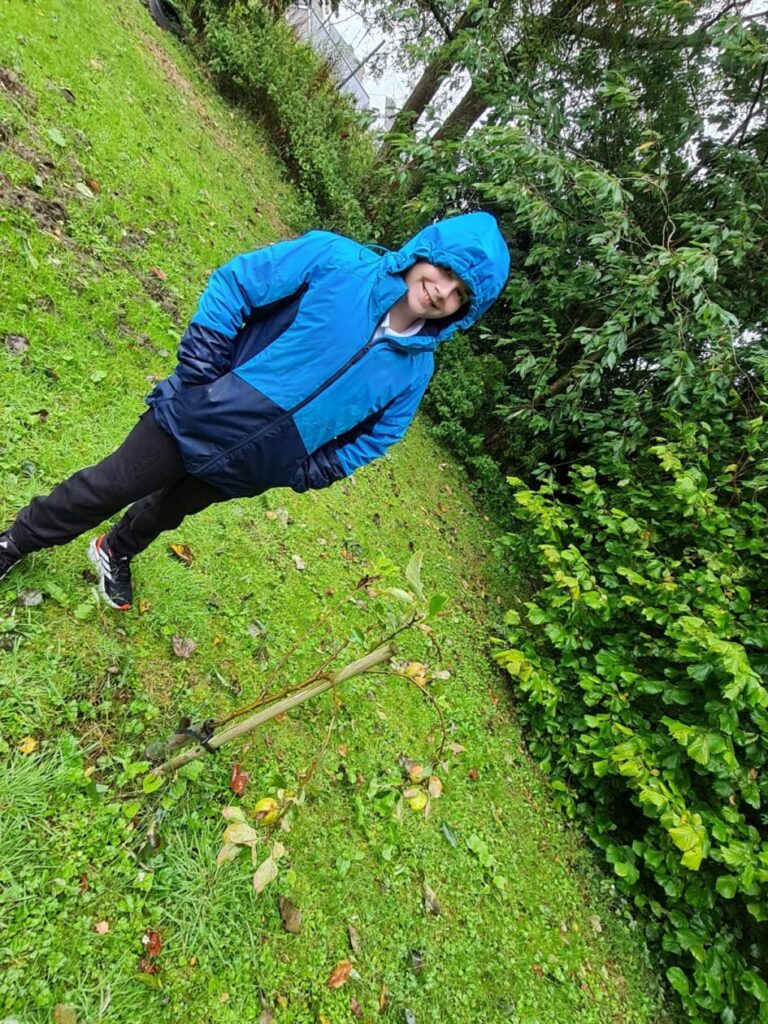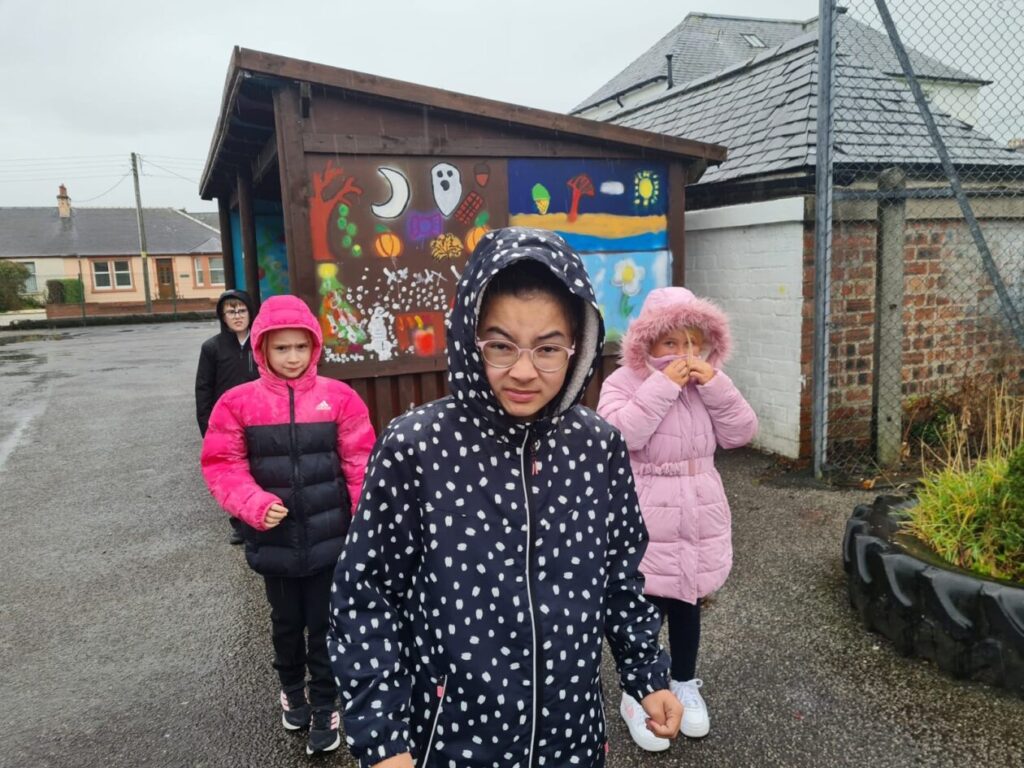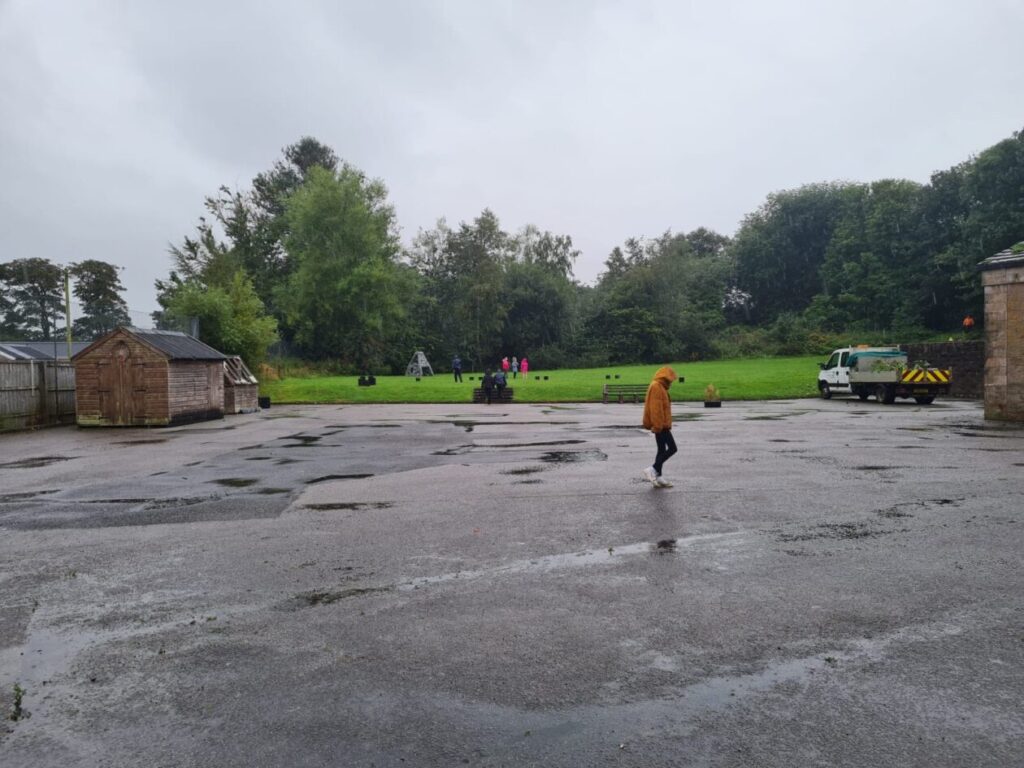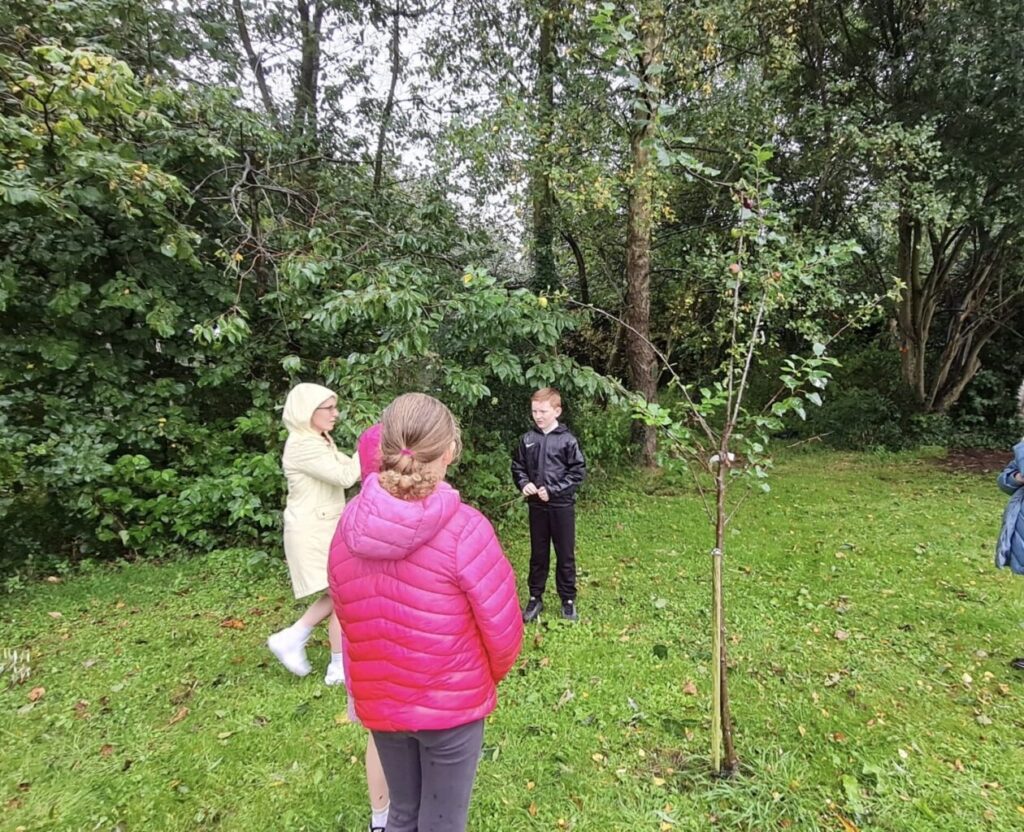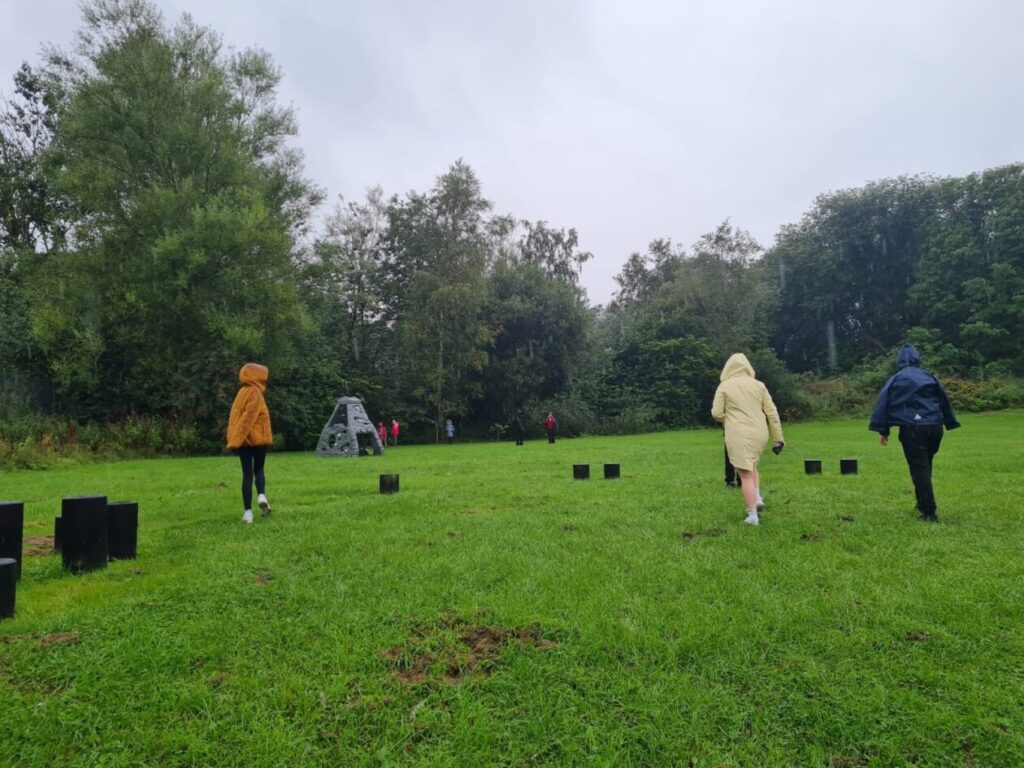🌧 Wild Writing in the Rain! ✏️🍃
This week our P5–7 pupils braved the rain for a special outdoor Wild Writing lesson. Even though the weather was wet, we wrapped up, headed outside, and explored the playground with a writer’s eye.
The children were challenged to look closely at the world around them – trees swaying in the wind, flowers dotted with raindrops, moss, seagulls, even the vans parked nearby! Armed with their senses, they gathered ideas and observations about size, shape, colour, sound, texture, and movement. Since it was too soggy to write outside, we used photos and memory notes back in class to capture our discoveries.
Once indoors, pupils turned their notes into descriptive writing. They experimented with similes, metaphors, adjectives, and figurative language to bring their chosen object to life. Some pieces were playful and imaginative, while others were rich in detail, capturing the sights and sounds of a rainy day in our school grounds.
This lesson was all about showing that inspiration for writing can be found anywhere – even on a wet and windy day in the playground! Pupils also reflected on their writing by giving each other feedback and identifying what they did well and what they could improve on next time.
We’re so proud of the creative effort shown by everyone – and even the rain couldn’t dampen our imagination. 🌧✨🌿
🌍 Links to Our Learning
UNCRC:
- Article 29 – Education should develop each child’s personality, talents, and abilities to the full.
- Article 31 – Every child has the right to take part in cultural and creative activities.
SDG Goals:
- Goal 4 – Quality Education 📚
- Goal 15 – Life on Land 🌱
SHANARRI:
- Achieving – developing descriptive writing skills through outdoor learning.
- Active – learning outside in the fresh air, even in the rain.
- Included – everyone participated and shared ideas.
Meta-skills:
- Creativity – experimenting with similes, metaphors, and figurative language.
- Communicating – expressing ideas clearly in descriptive writing.
- Critical Thinking – selecting the best details and improving writing.
- Focusing – working carefully despite the challenge of wet weather.
Strands of Faith:
- In the Image of God – valuing creation and recognising its beauty.
- Signs of God – noticing God’s presence in the natural world.
- Word of God – communicating reflections through descriptive language.
Four Capacities for Learning
- Successful Learners – using imagination, developing literacy skills, and reflecting on writing.
- Confident Individuals – sharing ideas outdoors, giving feedback, and taking pride in creative work.
